While unemployment is extremely low, a large percentage of Millennial and Generation X workers are self-employed, embracing the ever-growing gig economy. For HR recruitment personnel, this can equate to a worker shortage and stiff hiring competition.
Plus, the next demographic group to enter the American workforce, Generation Z (Gen Z), is bringing further change to the HR world. Roughly 67 million Americans are considered Gen Z, born between 1997 and the early 2010s. Around 17 million Gen Z members are now adults, beginning their careers. This generation of digital natives will greatly impact America’s employment landscape.
For the HR professional, the rise of Gen Z offers both opportunities and challenges. A business’s success will increasingly rely on engaging, recruiting and integrating Gen Z workers. For those interested in pursuing HR leadership positions, coursework in the University of Northern Colorado (UNC) online MBA with a Concentration in Human Resource Management delves into the intricacies of talent management, recruiting and performance management in the age of Gen Z.
Who Is Gen Z?
HR must strive to understand this new generation in a dynamic way: What do they have to offer? What are they looking for? What is the best way to engage them?
Many factors have affected the development and generalized traits of Generation Z members, and here are just a few:
- They grew up during the 2008 financial crisis and recession. This has led to the generation’s desire for monetary stability, with financial security and job resiliency taking priority over the freedoms of the gig economy.
- As digital natives, they have never known a world without social media and actively engage with social media platforms.
- They are the most diverse generation in American history.
- They are on track to be the most highly educated generation in American history.
- More members of Gen Z report feelings of anxiety and depression than other generations.
- They highly value “safe” workplace environments.
How Will Gen Z Affect the Recruiting Process?
The fact that Gen Z members are less entrepreneurial than Millennials can, initially, be useful for HR recruiting. Gen Z values careers that can build wealth and withstand recessions. Recruiting personnel can take advantage of this generation’s desire for job stability by offering reliable long-term benefits and compensation.
In terms of recruiting strategy, HR would do well to embrace and utilize Gen Z’s preferred media platforms such as YouTube, Facebook, Instagram and Twitter. Integrating AI for recruiting can vastly increase HR’s engagement reach within the digitally connected applicant pool. AI-based recruiting chatbots can also help expedite applicant screening. Digitizing interviews can help Gen Z applicants demonstrate qualifications in their native environment.
The diverse and socially progressive Gen Z population values workplace diversity as well as a company’s positive impact on society. HR recruitment would do well to strive for staff diversity and fine-tune their corporate culture and mission around Gen Z’s societal norms.
What About Performance Management on the Job?
To be proactive, HR needs to consider how to both make use of Gen Z’s strengths and adapt to and transform possible “negative attributes” on the job. For instance, Gen Z’s digital natives are well-suited to modernizing various business functions and incorporating technologies like AI and data analytics software. Gen Z is also uniquely suited to managing digital branding and running social media campaigns. Training can be expedited and take the form of video courses or interactive programs on digital devices.
Another important consideration is that Generation Zers tend to be more reserved in person-to-person interactions. Yet they desire regular, if brief, supervisory feedback. HR provides an important source for this regular feedback. HR can further encourage feedback across departments formally through performance assessment design or informally through company culture. Gen Z also has a strong work ethic. The flip side is that they tend to be risk-averse and avoid experimentation. They eschew student loan debt while constantly looking to learn and develop new skills.
Given all of these somewhat contradictory characteristics, it falls to HR to develop Gen Z’s willingness to take risks and collaborate. Modern business success relies greatly on these factors. Incentivizing innovation, experimentation and collaborative work through rewards such as financial bonuses and continued education experiences can help nurture these essential attributes. Through a combination of recruiting strategy development, technology adoption, professional development and performance management design, HR can drive the integration of this new, diverse and talented workforce.
Learn more about UNC’s online MBA program with a Concentration in Human Resource Management.
Sources:
Pew Research Center: Nearly Half of Post-Millennials Are Racial or Ethnic Minorities
The Wall Street Journal: Gen Z Is Coming to Your Office. Get Ready to Adapt.
Forbes: Gen Z Is Officially Here. How Will We Manage?
Inc.: How Generation Z Will Transform the Future Workplace
Rainmaker Thinking: The Voice of Generation Z: What Post-Millennials Are Saying About Work
Ryan Jenkins: How SAP Plans to Recruit 7,000 Generation Z Employees
Ryan Jenkins: Statistics Exposing What Generation Z Wants From the Workplace
